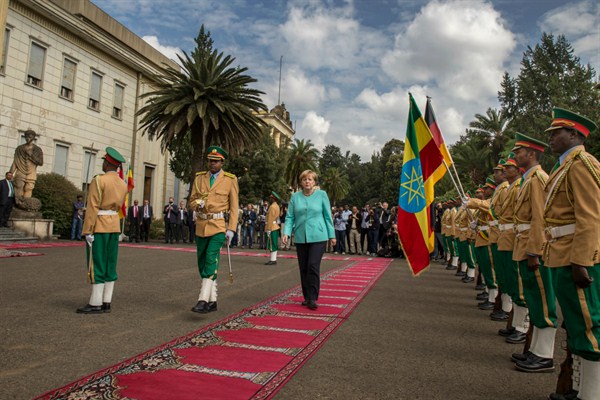German Chancellor Angela Merkel visited Africa last week, traveling to Mali, Niger and Ethiopia. Issues of security dominated her visit to Mali, while migration was central to her trip to Niger. In Ethiopia, Merkel focused on security dialogue with the African Union, but her expression of support for greater democratization in the country was equally important. Merkel was notably blunter about Ethiopia’s authoritarianism than U.S. President Barack Obama and American diplomats, suggesting Germany’s potential as a mediator and advocate for political rights on the continent.
Historically, Germany has not had nearly the same interest in Africa as France, Britain and the United States. It had several colonies in Africa in the late 19th and early 20th centuries, but lost them after its defeat in World War I. In more recent times, Germany’s role has been primarily related to development and humanitarian issues. Germany usually does not make the list when observers discuss emerging foreign players in Africa, such as China, Turkey, Russia and Iran.
Yet as Merkel’s own website stated, “Africa is increasingly a focus of Germany’s foreign, security and development policy.” This change reflects Germany’s central role in the European migration crisis. In 2015, Germany took in nearly 900,000 refugees. Most of the asylum-seekers in Europe come from Syria, Afghanistan and Iraq, but sub-Saharan Africa is also a key source of migrants. Niger, and particularly the northern Nigerien city of Agadez, is a key transit hub for migrants from all over West Africa. Niger’s president, Mahamadou Issoufou, has repeatedly asked for more European support and engagement in African development in an effort to stem migration at the source. Following the November 2015 European-African summit on migration, Issoufou was one of several African leaders who called on European countries to do more for the continent.

